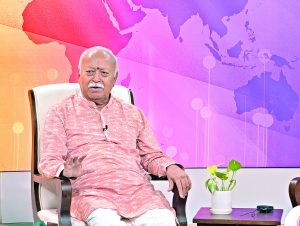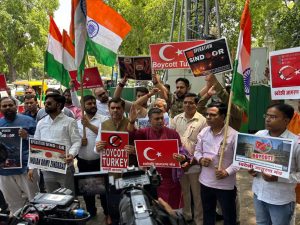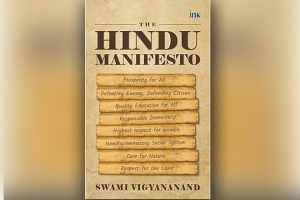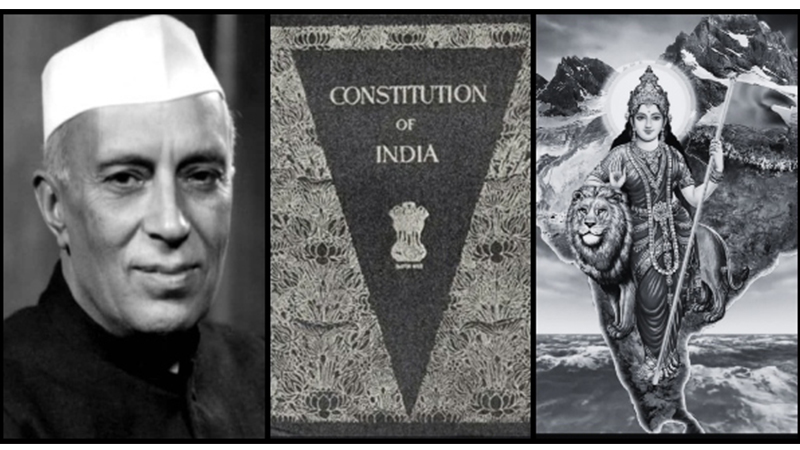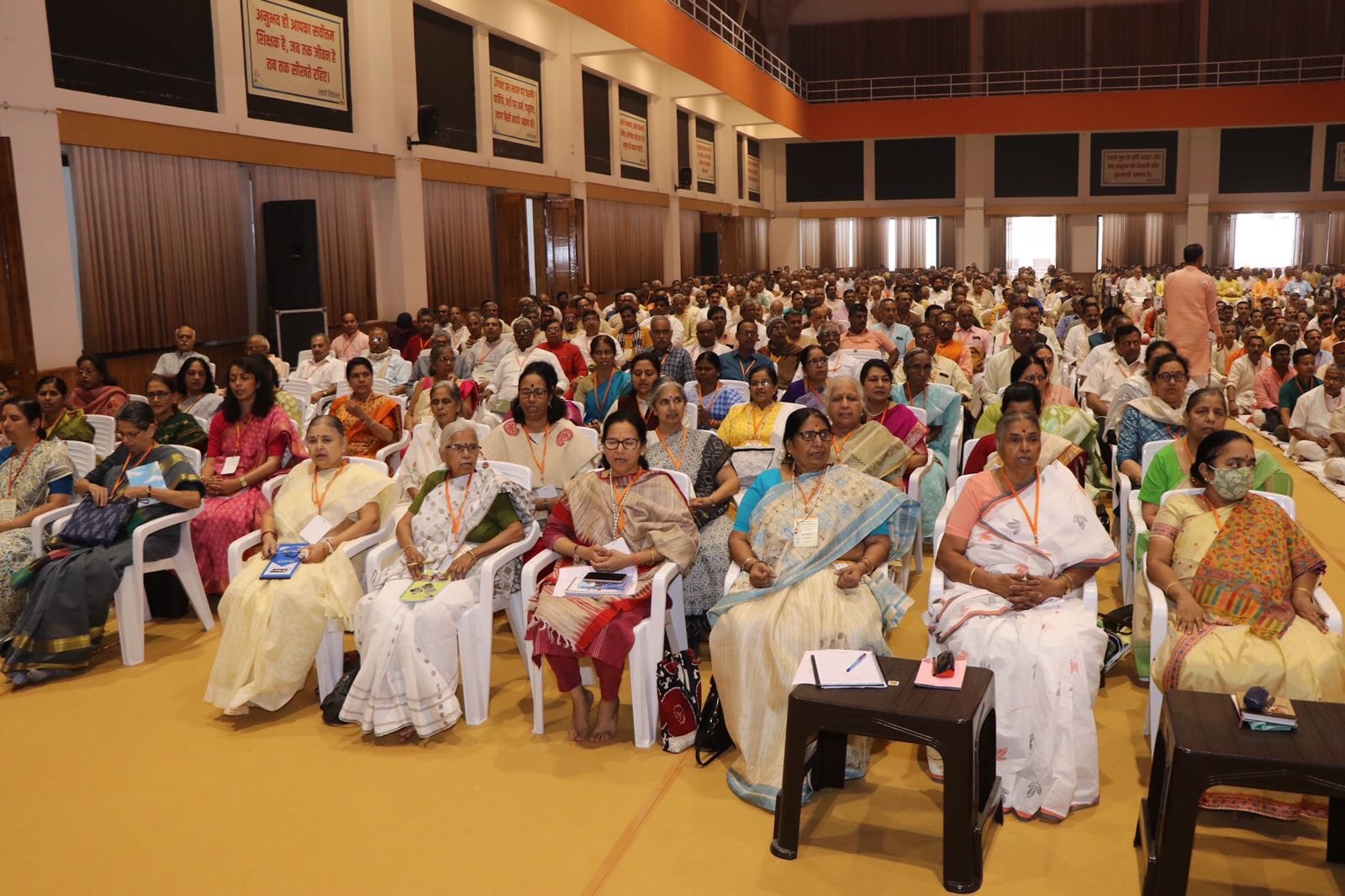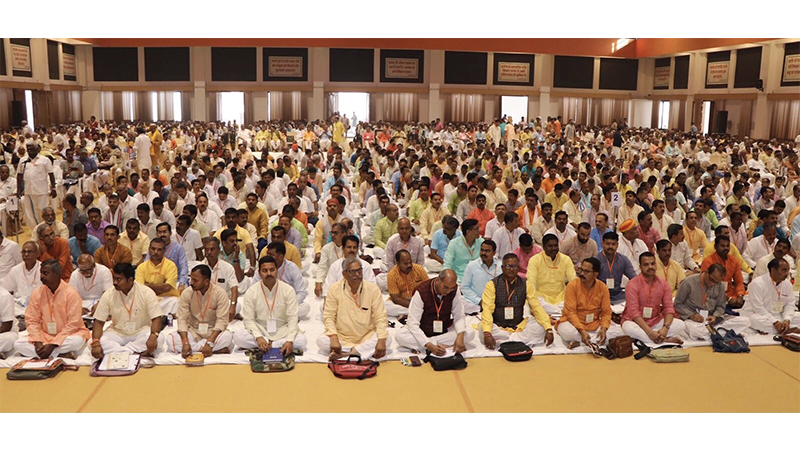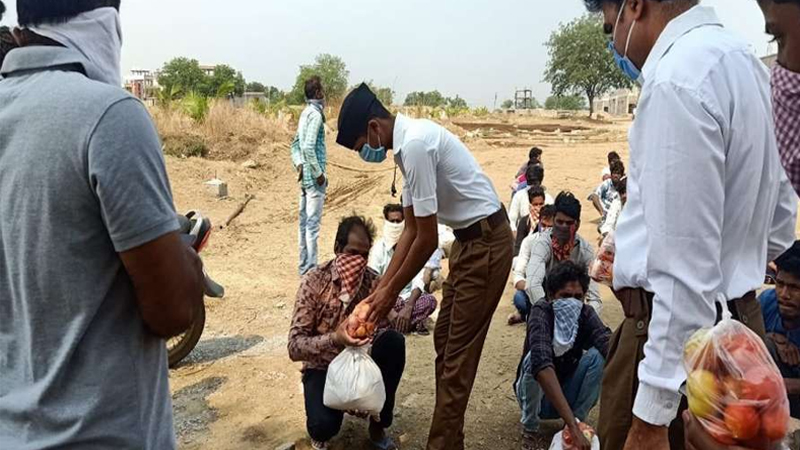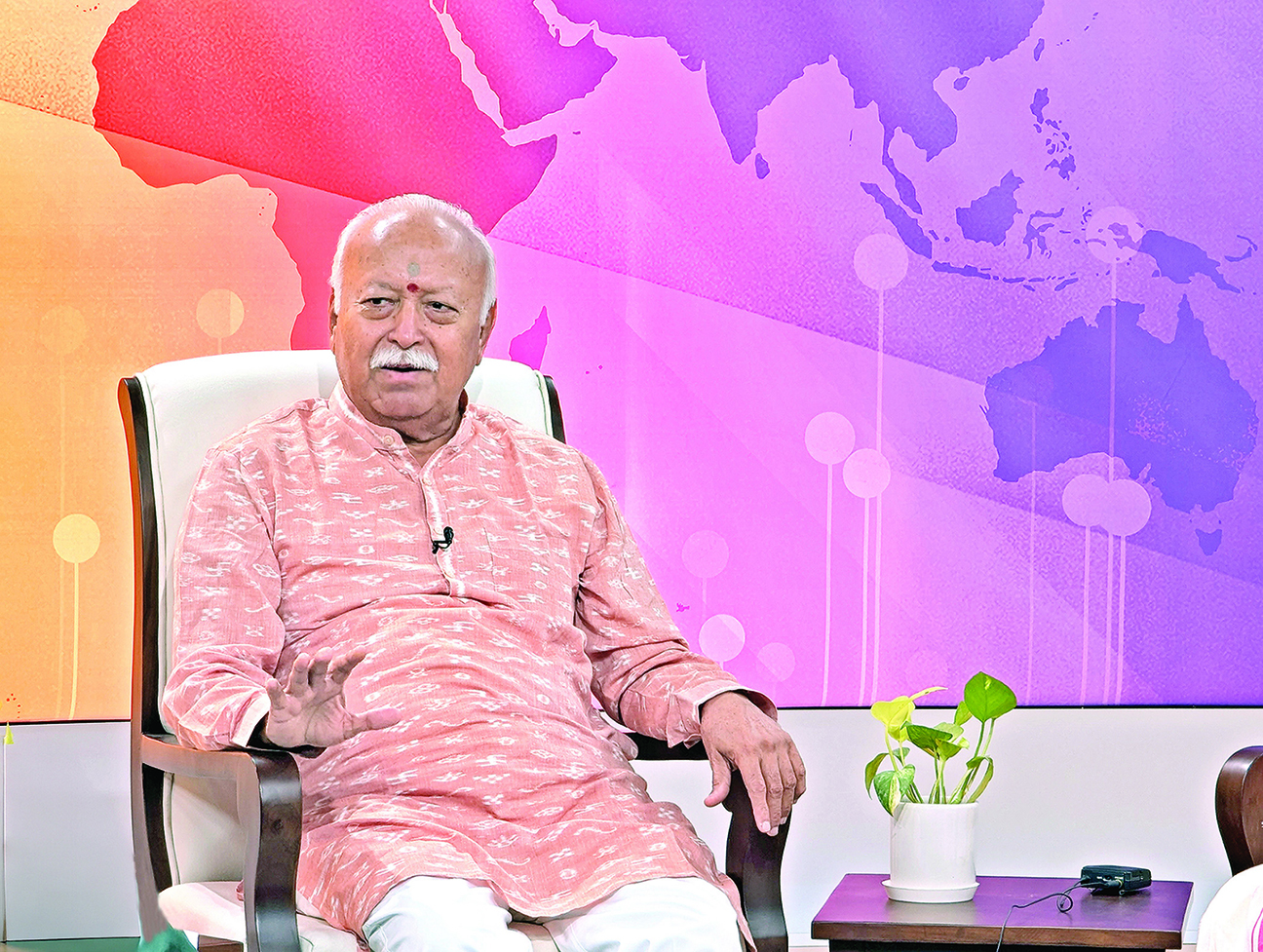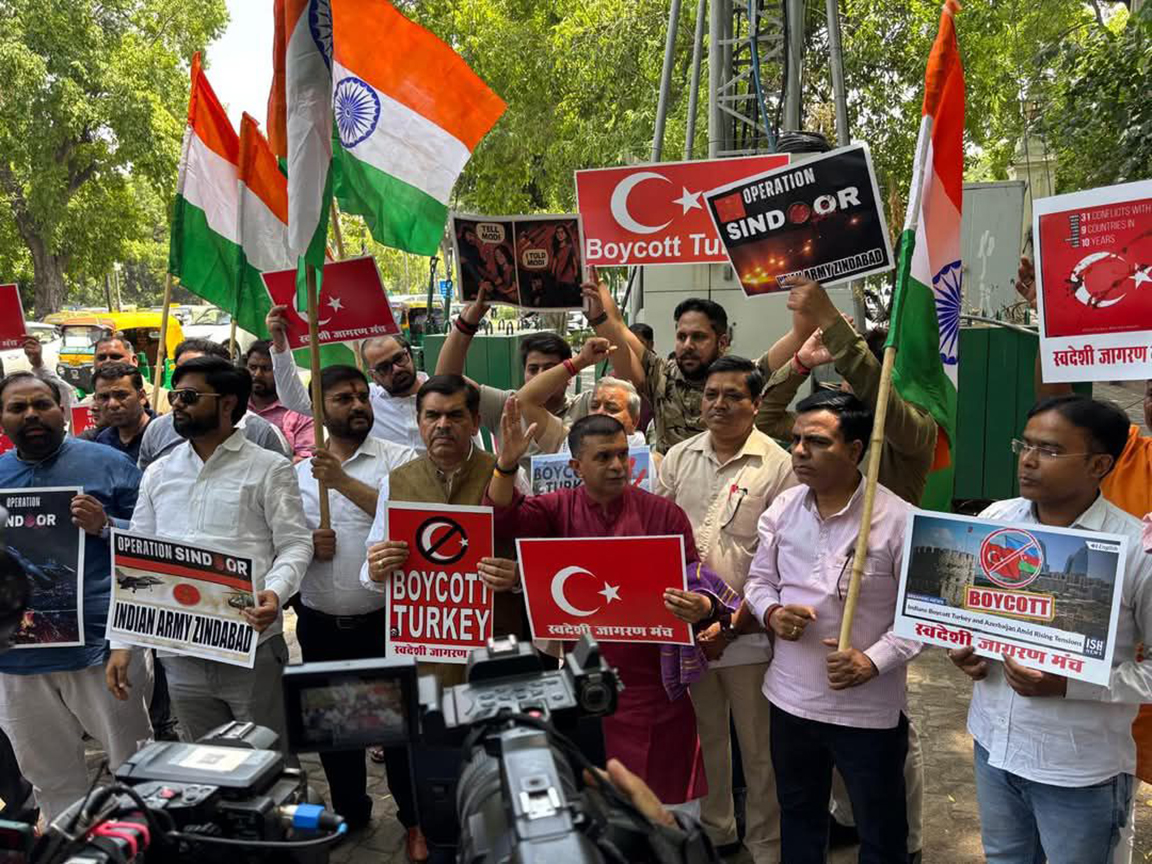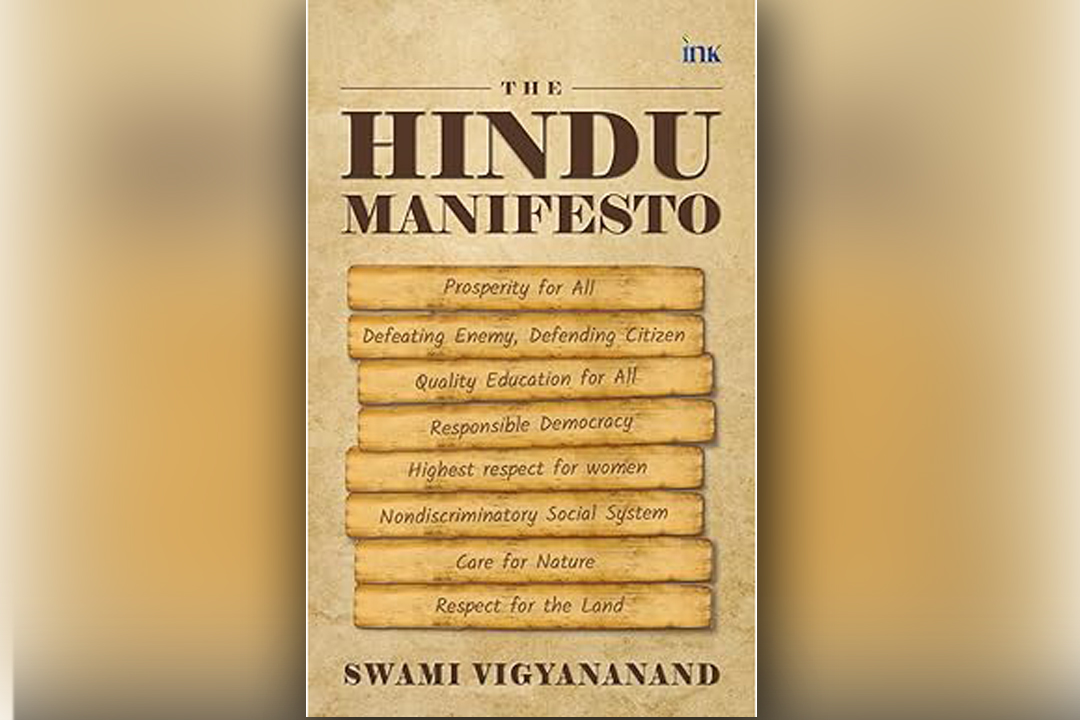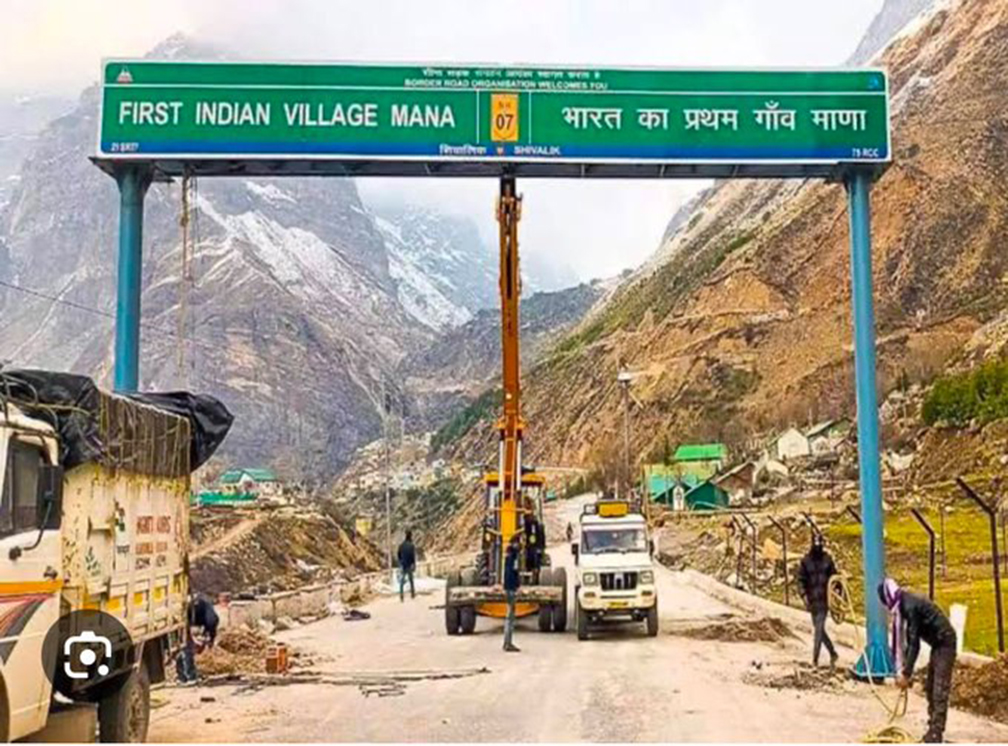Manikchandra Vajpayee, the Pracharak & editor who became benchmark of journalism for RSS
Updated: December 15, 2022 11:06

Few people outside the RSS have probably heard of Manikchandra Vajpayee, but he is one of the most revered figures within Sangh, especially when it comes to journalism.
If you want to know how the Rashtriya Swayamsevak Sangh (RSS) looks at the media, then you must know about Manikchandra Vajpayee.
Few people outside the RSS have probably heard his name, but he is one of the most revered figures within the Sangh, especially when it comes to journalism.
Popularly known as ‘Mamaji‘ within the Sangh, he is one of the very few who devoted their life to journalism, as he headed the RSS-inspired Hindi daily Swadesh for almost three decades.
Not only is he credited with turning a small newspaper into a multi-edition daily (it has eight editions now), but his journalism is considered to be the benchmark within the Sangh. In a nutshell, the RSS considers him to be its role model in journalism.
Vajpayee was one of the very few pracharaks who worked in the media. The organisation was never known for devoting substantial resources for the media, and hence, only a handful of pracharaks have worked as journalists in the Sangh’s 96-year-old history.
In fact, until the mid-1980s, the RSS didn’t have a media relations wing, which is known as Prachar Vibhag in the Sangh.
Though the Sangh has become much more media savvy over the last couple of decades, in the first few decades after independence, it was people like Manikchandra Vajpayee who tried to create a niche for the RSS within the media space.
Unlike many other journalists or editors of their era, they remained low-profile and quietly worked on the ground with scant resources to build organisations that are quite formidable now.
The man from Agra
Manikchandra Vajpayee was born on 7 October 1919 in Bateshwar, in what is now Agra district of Uttar Pradesh. He died on 27 December 2005 in Gwalior (Madhya Pradesh).
He passed the middle school examination from Gwalior and got a gold medal in the intermediate examination from the Ajmer board.
He later completed his B.A. and L.L.B. As an RSS pracharak from 1944 to 1953, he mostly worked for the expansion of the organisation in the Bhind region of present-day Madhya Pradesh. He was in jail for 19 months during the Emergency.
He also served in the Bharatiya Jana Sangh, the forerunner of BJP, from 1951 to 1954 as an organisation secretary for North Central India region. As directed by the organisation, he contested the assembly elections from Bhind in 1957 against Shri Narasimha Rao Dixit, and in 1962 against Rajmata Vijayaraje Scindia from Gwalior. He was a teacher in Lahrauli, Bhind district, for 10 years from 1954.
He started his journalism from Bhind as editor of the weekly Deshmitra. He joined the daily Swadesh in 1966. From 1968 to 1985, he was its editor and editor-in-chief.
Atul Tare, the current group editor of Swadesh, says, “I have had the privilege to work and learn from Mamaji. He was an extraordinary man but he used to keep his demeanour very ordinary. It is not easy to be like him. His writing was very sharp but he never attacked anyone personally. He absolutely kept away from any biases or prejudices.”
Celebrations of his life
In 2020, organisations inspired and backed by RSS celebrated Mamaji’s birth centenary year.
A collection of his writings and writings on his life and work was also published under the title ‘Shabdpurush Manik Chandra Vajpayee’. The book was released by Sarsanghchalak Mohan Bhagwat and then-Union minister for information and broadcasting Prakash Javadekar in Delhi.
The Bharatiya Janata Party government in Madhya Pradesh government had issued a special postage stamp on him as part of his centenary celebrations.
Sarsanghchalak Mohan Bhagwat himself was present at the closing ceremony of his birth centenary year in Delhi on 7 October 2020. He had said on the occasion that the present expanse of RSS owes a large credit to litterateurs and journalists like Manikchandra Vajpayee, who worked silently for the nation.
The ‘Manikchandra Vajpayee National Award’ for journalism was announced in 2006 by the Madhya Pradesh government in his memory, for conscientious journalism.
The award was discontinued in a controversial decision when the Congress came to power in the state under the chief ministership of Kamal Nath. After the Congress government was ousted and replaced by the BJP government under Shivraj Singh Chouhan, the decision was reversed.
When Manikchandra Vajpayee turned 75, an Amrit Mahotsav was organised at the residence of the then Prime Minister Atal Bihari Vajpayee. Then-Sarsanghchalak K.S. Sudarshan was also present in another Amrit Mahotsav, organised at Bhind (Madhya Pradesh), for ‘Mamaji’.
Atal Bihari Vajpayee respected ‘Mamaji’ so much that when the latter passed away in 2005, the former PM left the BJP’s national executive meeting in Mumbai midway and came to attend his funeral.
Sridhar Paradkar, who co-authored a book on Partition with Manikchandra Vajpayee, said, “I was in Delhi with Mamaji for one-and-a-half years at the time of writing the book. In those days, Atalji was the Prime Minister, but let alone any effort to meet him, he never even tried to talk on the phone with Atalji. This is not what worldly wise people do!”
In addition to being a journalist, Manikchandra Vajpayee also penned more than half a dozen books as an author.
Two of the most important reference points during the 96-year-old journey of the RSS are Partition of India in 1947 and imposition of the Emergency (1975-77).
Mamaji was also imprisoned during the Emergency for 19 months. But he co-authored two of the most important texts regarding these reference points that presented the RSS’ perspective on Partition and the Emergency, and the role played by RSS’ swayamsevaks during these testing times.
The texts are titled ‘Partition Days-The Fiery Saga of RSS’ (originally written in Hindi as ‘Jyoti Jala Nij Pran Ki’) and ‘Apaatkaleen Sangharsh Gatha’ in Hindi.
The introduction to the latter was written by another RSS stalwart, Dattopant Thengadi.
The 35-page introduction is a treat to read and highlights the importance of this book for the RSS. The book on Partition also brought out, for the first time in detail, the role played by the RSS from Punjab to Bengal in terms of saving Hindus from the communal attacks and helping them to rehabilitate.
The book is based on more than 7,000 personal interviews and is considered to be one of the standard texts on the issue of Partition within the Sangh.
(The Article was first published in The Print on 7 October, 2021 – https://theprint.in/india/manikchandra-vajpayee-the-pracharak-editor-who-became-benchmark-of-journalism-for-rss/746397/ )
